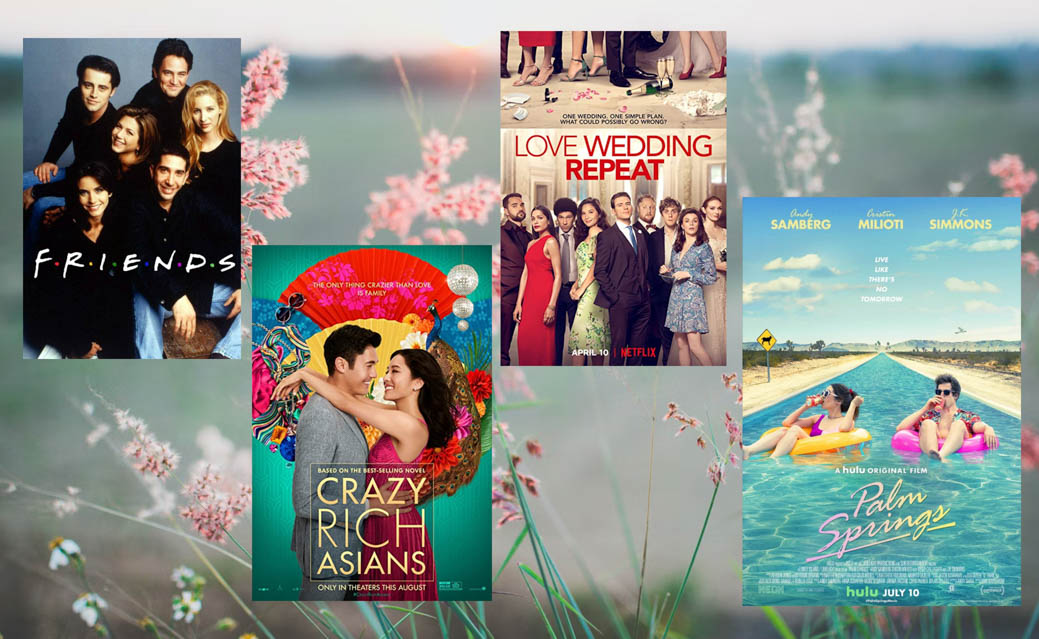The reassurance of romantic comedies
Finding comfort in the genre’s subtle formula for self-love.
In the modern cinematic age, choice is both a privilege and a curse. The privilege is the convenience of being able to choose from thousands of films so that no mood or occasion is ever without a perfectly suited film. The curse is that choosing one film from an endless collection of genres is overwhelming and often corners us into rewatching familiar flicks. It is the reason you might spend two and a half hours scrolling meticulously through Netflix, Amazon Prime Video, or Crave, only to settle on a movie you have already seen a hundred times.
There have been dozens of studies, such as from the Journal of Personality and Social Psychology, on how an excess of choice can actually be detrimental to a business and discourage customers away from what they might otherwise buy; the extensive cinematic catalogue of multiple streaming services is a perfect example of this issue. So, despite thousands of films, we stick to the familiar on a typical day.
The predictable formula of romantic comedies tends to satiate that craving for familiarity. Unlike the horror genre, which continuously tries to subvert our expectations, romantic comedies continuously seek to affirm our expectations. This is why the same actors appear in so many of these films, and the same storylines get rehashed. This predictability only works within the confines of certain narratives, for no one wants to rewatch a film that disturbs or saddens them in a deep and lingering way. So, what makes a romantic comedy so beloved?
This nuance within the genre, often concealed by cliches and corny plot lines, is that love is not a solution to all of life’s difficulties but rather a reward waiting for the protagonist.
The structure of a romantic comedy thus insists to seek out some individual transformation to reach “happily ever after.” What makes the genre so resilient and widely enjoyed is not the easily discernible veneer of romantic idealism, rather it seems to be the emphasis on individual change.
Perhaps this is optimism, but I do not think people are so easily duped by corny plot lines about love. What continuously draws us into the stories is witnessing someone overcome a difficulty in their life. This is a timeless structure proven to evoke some degree of catharsis. So, while much of the movie is concerned with love, the immediate concern is confined to the individual.
To deconstruct this, let us examine the most fundamental structure of a romantic comedy, or as writer Kurt Vonnegut calls it in his famous thesis, Boy Meets Girl.
We meet our protagonist on a day like any other. Through the means of a “meet cute,” our protagonist is whisked away in romance until the “honeymoon” phase of the film is interrupted by some degree of reality. The serendipitous story gets messy.
Flaws and mistakes start to catch up to the protagonist, and they generally encounter some difficulty in romance. After all, it would be a short movie if there were not a few deviations from “happily ever after.” They try to push themselves toward things that they believe will make them happy, like work or meaningless sex, until they realize their mistakes in a moment of clarity, come to terms with their flaws, and make some grand gesture to express their never-ending affection for their romantic interest.
We are all familiar with this structure, and granted, not every romantic comedy follows it exactly; it might be reconfigured, inverted, or in rare cases even betrayed, but generally the narrative can be deconstructed into this form.
What we have beneath the complicated, romantically charged story is a rather fundamental plot structure that focuses on character building and is adored across several different genres. But when you add quirky side characters, charming character flaws, and sex, it is no surprise the genre continues to be so successful.
So, the next time your cynical friend tries to shame you for watching films that end with people kissing in the rain, or running through airport terminals, just sit them down and meticulously deconstruct plot structures until they understand the universal attraction of romantic comedies (and do not forget to tell them they are wrong).

